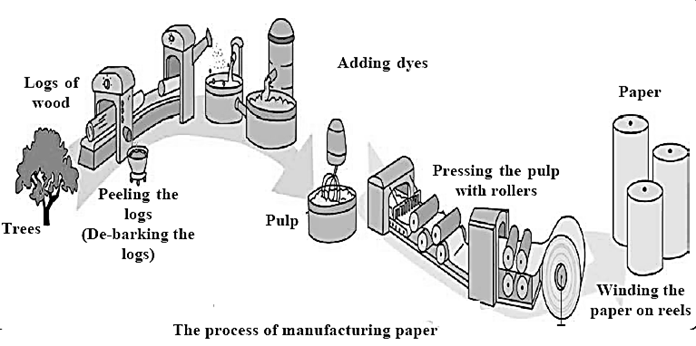Substances In Daily Use
Based on Maharashtra Board Class 6th General Science Chapter 6
Notes
Topics to be learn :
|
Substances and objects : All substances are made up of very small, minute particles. Such substances make the objects. Each object has its own shape and specific arrangement.
- Objects are made according to the properties of the substances that are used in making these objects.
Many objects can be made from the same substance or material. Cotton, iron, aluminium are materials from which different kinds of objects can be made.
Classification of substances : There are two types : Natural and Man-made. Natural substances : The biotic substances are divided into two categories :
Man-made substances :
Naturally available substances are processed and from them new substances of human choice are made, these are called man-made substances.
Several man-made substances are in use. They are easier to use and are available plentifully at low cost. They satisfy the needs of man and make his life more comfortable
Examples of man-made substances : The properties of constituents of natural substances undergo permanent and irreversible changes due to chemical reaction. The original substances cannot be obtained again from these new substances.
Production of man-made substances :
(1) Rubber : Rubber is of two types, i.e. natural or artificial,
Natural rubber is obtained from ‘latex’ or sap of the rubber tree. This rubber has white colour and peculiar odour.
Vulcanization of rubber : Rubber is heated along with Sulphur for three to four hours. Sulphur makes the rubber hard. This process is called vulcanization. The proportion of sulphur varies with the products to be mad€-
(2) Paper :

Natural fibres : We get threads and fibres from nature substances like cotton, wool, jute, hemp, silk, etc.
- Cotton clothes are man made but made from natural fibres. In these fibres the sweat is absorbed. The skin remains dry and the chance of catching skin Infection is less. Therefore we must use cotton clothes in summer
Synthetic fibres or threads :
Nylon, dacron, terylene, terene, polyester, rayon, etc. are synthetic fibres
Nylon : The word Nylon is coined from two cities i.e. NY (New York) and Lon (London) where these threads were invented. Nylon threads are used to manufacture clothes, fishing nets, ropes, etc. Nylon threads are strong, transparent and water resistant.
Rayon : Rayon threads are shining bright like sun's rays and hence the name_
They are also called synthetic silk. Rayon is made from cotton and wood pulp by dissolving it in sodium hydroxide solution.
Dacron. Terylene, Terene are different types of synthetic threads formed from hydrocarbons.
Manufacturing of Terylene fibre :
Glass : Glass can be made from sand and calcium carbonate. However, sand and calcium carbonate cannot be obtained again from glass.
Advantages and limitations of synthetic fibres : Advantages of synthetic fibres : Limitations of synthetic fibres :
Click on below link to download pdf from store:
MSBSHSE-Class-6-Science-Chapter-6-Substances In Daily Use -Notes
MSBSHSE-Class-6-Science-Chapter-6-Substances In Daily Use-Solution
MSBSHSE-Class-6-Science-Chapter-6-Substances In Daily Use-Book
Useful links of Class 6th General Science :
| Main Page : Class 6th MSBSHSE – General Science - All chapters notes, solutions, videos, test, pdf.
Previous Chapter : Chapter-5- Substances in the surrounding- Online Notes Next Chapter : Chapter-7- Nutrition and Diet- Online Solution |